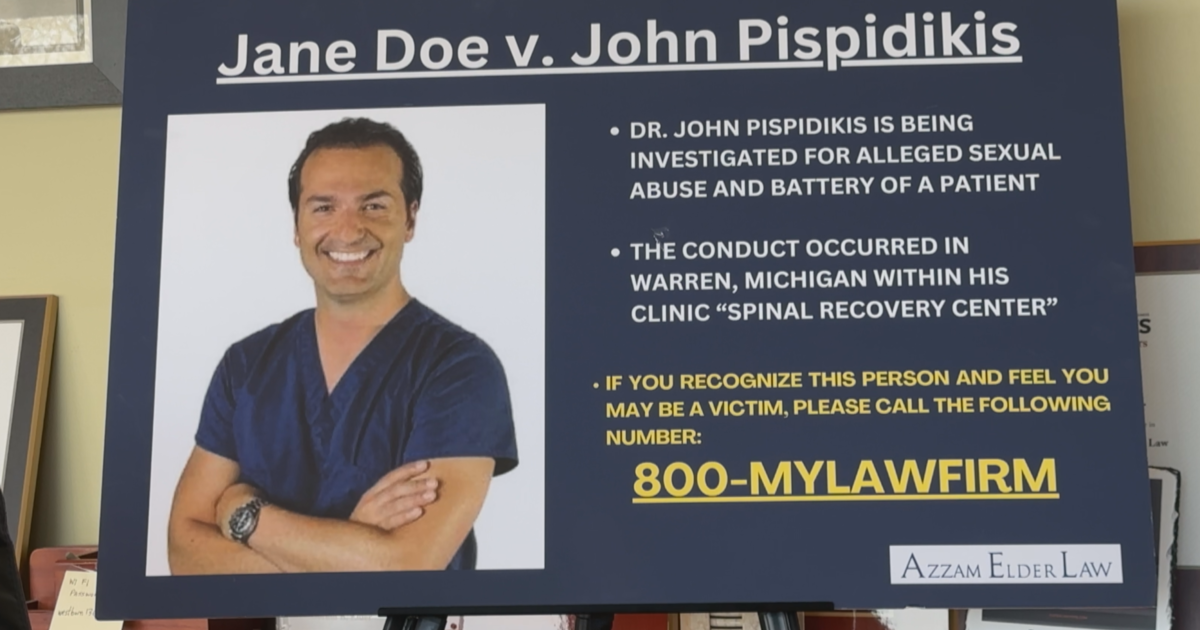Oregon
Federal judge dismisses former legislative employee's suit over Capitol harassment investigations • Oregon Capital Chronicle

A federal judge dismissed a $1.2 million lawsuit from the Oregon Legislature’s ousted equity officer, saying lawmakers didn’t retaliate when they released a memo about him in response to a records request.
Nate Monson worked as the Legislature’s acting legislative equity officer for just 64 days in spring 2021, filling a position created in 2019 in the wake of multiple sexual harassment scandals involving lawmakers. Since leaving, he has alleged he was forced to resign for trying to draw attention to rampant mismanagement of employee complaints and for alerting legislators and legislative staff to violations of federal, state and local discrimination laws.
Monson first sued in Marion County Circuit Court in April 2022, and his case was soon moved to federal district court in Eugene. Last month, District Court Judge Ann Aiken dismissed his case. The Oregonian/OregonLive first reported Aiken’s decision Friday.
Monson sued the state and current and former lawmakers Floyd Prozanski, Chuck Thomsen, Julie Fahey and Ron Noble, as well as legislative human resources director Jessica Knieling. An earlier version of his complaint also named Gov. Tina Kotek and former Senate President Peter Courtney, who led the House and Senate during his tenure, and legislative counsel Dexter Johnson.
He initially accused the lawmakers and legislative employees of retaliating against him by ignoring him, opening an investigation into his background and defaming him and violating his First Amendment free speech rights by trying to silence him. Nearly two years later, Monson narrowed his lawsuit to focus on just one claim: Knieling and the lawmakers discriminated against him after he left the Legislature by releasing a memo Knieling wrote about his employment history in response to public records requests.
“The court concludes that because the release of the Knieling memo was required by Oregon public records law following a public records request, and because plaintiff was not entitled to notice of the release, there was no adverse action and it is unnecessary for the court to reach the question of causation,” Aiken wrote.
Gossip-filled workplace
Monson joined the Legislature in April 2021, two years after top lawmakers and Capitol staff had entered a binding legal agreement with the Bureau of Labor and Industries following a lengthy investigation into sexual misconduct and discrimination that spanned years.
One component of that agreement was creating the legislative equity office, which for more than two years was run by an interim officer. Monson, who had previously worked in Iowa, was the first full-time legislative equity officer hired by the Legislature.
His lawsuit said the Capitol was a dysfunctional and gossip-filled workplace and that Monson began raising concerns about the office’s prior mismanagement shortly after he arrived, including that law firms investigating reports of inappropriate behavior weren’t paid on time, which dragged out investigations, and that his predecessor didn’t maintain records of past and ongoing cases and instead handed him a Post-it note with some details.
In response, his suit claimed, Knieling began scrutinizing his background. She found that Monson misrepresented himself as a former employee of the Iowa Coalition for Collective Change, despite never having worked for the organization and that he was fired in 2020 from Iowa Safe Schools, a nonprofit organization for LGBTQ students. Knieling submitted a memo to the Legislature’s Joint Conduct Committee, which summoned him to a meeting on June 9, 2021, to ask questions about his background.
Less than a week later, on June 15, Monson resigned. That resignation prompted freelance journalist Dick Hughes to file a records request on June 29 asking for all materials related to Monson’s resignation, according to court documents. The following day, Monson reached out to Oregon Public Broadcasting’s Dirk VanderHart to detail his complaints, resulting in an article about a week later that spelled out Monson’s concerns about the office.
Shortly after publishing that article, OPB contacted Knieling asking for materials related to Monson’s résumé. Lawmakers on the legislative counsel committee released the memo Knieling drafted a week before Monson’s resignation.
It took nearly two years after Monson’s ouster for the Legislature to hire a permanent employee to handle conduct complaints at the Capitol. Bor Yang, who previously led the Vermont Human Rights Commission, has been on the job for a little less than a year.
GET THE MORNING HEADLINES DELIVERED TO YOUR INBOX

Oregon
Flavored tobacco ban clears Oregon court hurdle

The Oregon Court of Appeals has upheld a Washington County ordinance barring the sale of flavored tobacco products, in a ruling that could have ramifications for a similar ban in Multnomah County.
Wednesday’s ruling reversed a 2022 decision from Washington County Circuit Judge Andrew Erwin, who said the county had the power to regulate how sales are made but that only the state had the authority to ban products completely.
Oregon
Appeals court rejects climate change lawsuit by young Oregon activists against US government

SEATTLE – A federal appeals court panel on Wednesday rejected a long-running lawsuit brought by young Oregon-based climate activists who argued that the U.S. government’s role in climate change violated their constitutional rights.
The 9th U.S. Circuit Court of Appeals previously ordered the case dismissed in 2020, saying that the job of determining the nation’s climate policies should fall to politicians, not judges. But U.S. District Judge Ann Aiken in Eugene, Oregon, instead allowed the activists to amend their lawsuit and last year ruled the case could go to trial.
Acting on a request from the Biden administration, a three-judge 9th Circuit panel issued an order Wednesday requiring Aiken to dismiss the case, and she did. Julia Olson, an attorney with Our Children’s Trust, the nonprofit law firm representing the activists, said they were considering asking the 9th Circuit to rehear the matter with a larger slate of judges.
“I have been pleading for my government to hear our case since I was ten years old, and I am now nearly 19,” one of the activists, Avery McRae, said in a news release issued by the law firm. “A functioning democracy would not make a child beg for their rights to be protected in the courts, just to be ignored nearly a decade later. I am fed up with the continuous attempts to squash this case and silence our voices.”
The case — called Juliana v. United States after one of the plaintiffs, Kelsey Juliana — has been closely watched since it was filed in 2015. The 21 plaintiffs, who were between the ages of 8 and 18 at the time, said they have a constitutional right to a climate that sustains life. The U.S. government’s actions encouraging a fossil fuel economy, despite scientific warnings about global warming, is unconstitutional, they argued.
The lawsuit was challenged repeatedly by the Obama, Trump and Biden administrations, whose lawyers argued the lawsuit sought to direct federal environmental and energy policies through the courts instead of through the political process. At one point in 2018, a trial was halted by U.S. Supreme Court Chief Justice John Roberts just days before it was to begin.
Another climate lawsuit brought by young people was successful: Early this year the Montana Supreme Court upheld a landmark decision requiring regulators to consider the effects of greenhouse gas emissions before issuing permits for fossil fuel development.
That case was also brought by Our Children’s Trust, which has filed climate lawsuits in every state on behalf of young plaintiffs since 2010.
Copyright 2024 The Associated Press. All rights reserved. This material may not be published, broadcast, rewritten or redistributed without permission.
Oregon
Federal cannabis reclassification could bring pharmaceutical companies to Oregon’s marijuana industry

The Biden administration is moving to reclassify cannabis as a Schedule III drug, which would remove the plant from the “most dangerous” list and recognize that it has medical uses.
The Biden administration is working towards reclassifying cannabis as a Schedule III drug. If this is successful, cannabis will no longer be considered as one of the “most dangerous” drugs, and its medical benefits will be recognized.
Kristian Foden-Vencil / OPB
Portland attorney Amy Margolis sees the move as a way to get much-needed research on cannabis, but it could also pave the way for big pharmaceutical companies to get involved in the established industry in Oregon.

Amy Margolis is a Portland attorney specializing in cannabis law and policy.
Courtesy Amy Margolis
“They’re the ones who will be legally operating if they follow the final rules produced by the FDA and the standard FDA approval and sales process for pharmaceuticals,” Margolis says. “It certainly injects a concern that now we have real big pharmaceutical interests involved in the cannabis market.”
Margolis runs Margolis Legal, a Portland law firm that works with clients in the cannabis industry. She says this proposal doesn’t do what many in the industry have been advocating for; removal of cannabis from the schedule of illegal drugs entirely.
“I think it’s a remnant of the drug war, ” she says. “I think it’s kind of outdated perspectives on cannabis being a hard drug.”
Margolis spoke with OPB “All Things Considered” host Geoff Norcross:
Geoff Norcross: Basically speaking, the Biden administration is saying they want to officially recognize that cannabis is not as dangerous as the most dangerous drugs. Isn’t that a good thing?
Amy Margolis: Theoretically, that’s a good thing. We’ve long known that cannabis is not dangerous, should be treated like alcohol, which this does not do. But in theory, yes, that’s a good thing. How it impacts the market? We’re not so sure.
Norcross: Okay, what could happen?
Margolis: So what this did is it sent over the reclassification recommendation to the FDA to essentially rule make around it. And from my perspective, and I think the perspective of many of my peers, this simply opened up a pathway for pharmaceutical companies to get involved in the cannabis industry, whether through the development and sales of pharmaceutical cannabis or through the research component.
Norcross: And what would that mean for the local market, which doesn’t have a lot of big players like the pharmaceutical industry in it?
Margolis: Other than the DOJ, there was not too much outside interests who might care if prosecutions were happening, who might care if statewide industry is developing. I think the risk for Oregon — and this is sort of a worst-case scenario — is that pharmaceutical companies can now get involved. They’re the ones who will be legally operating if they follow the final rules produced by the FDA and the standard FDA approval and sales process for pharmaceuticals. Now you have a player beyond just the Department of Justice who could have some interest in owning that market. It certainly injects a concern that now we have real big pharmaceutical interests involved in the cannabis market. And they’re the only ones who can lawfully operate.
Norcross: One of the big problems for the cannabis industry here has been the lack of banking services or tax breaks that other businesses get. Would this move by the federal government this week change any of that?
Margolis: I think it remains to be seen. You know, the banking industry will look at this, federal regulators will look at this, and try and decide if this clears up the legality around the state licensed recreational and medical markets. And I do not believe this move by the Biden administration does that. I don’t believe it legalizes on a federal level what is currently happening in this state. And that is, aside from federal legislation, the path forward to safe banking.
Norcross: You touched on this a little bit earlier, that what the federal government could have done was to treat cannabis like it’s alcohol, and let an entirely different federal agency, the ATF, oversee its use and the regulations around it. I’m wondering if the Biden administration may have missed an opportunity to go all the way and just take it off the schedule of drugs entirely.
Margolis: I think “missed an opportunity” is how the industry will view it. I mean, the industry in Oregon and across the country has been advocating for cannabis to be declassified and not reclassified. And I think the Biden administration knows that and instead chose to go this direction. I think it’s a remnant of the drug war and I think it’s kind of outdated perspectives on cannabis being a hard drug. We’ll see if this is maybe the first step, but I’m concerned that, for the federal government, first steps can last a long time.
Norcross: Do you see any upside for the industry here in Oregon, if cannabis is reclassified in this way?
Margolis: I do think the upside is, you know, we have in the industry been talking about research and cannabis for a long time. And this does open the door to that, which I think will be a positive, even if it’s only a financial benefit to those in the pharmaceutical industry.
Click on the audio player above to hear the whole conversation.
-

 Education1 week ago
Education1 week agoVideo: Dozens of Yale Students Arrested as Campus Protests Spread
-

 News1 week ago
News1 week agoLarry Webb’s deathbed confession solves 2000 cold case murder of Susan and Natasha Carter, 10, whose remains were found hours after he died
-

 World7 days ago
World7 days agoHaiti Prime Minister Ariel Henry resigns, transitional council takes power
-

 Politics1 week ago
Politics1 week agoFetterman hammers 'a–hole' anti-Israel protesters, slams own party for response to Iranian attack: 'Crazy'
-

 World1 week ago
World1 week agoUS secretly sent long-range ATACMS weapons to Ukraine
-

 News7 days ago
News7 days agoFirst cargo ship passes through new channel since Baltimore bridge collapse
-

 World1 week ago
World1 week agoTurkey’s Erdogan meets Iraq PM for talks on water, security and trade
-

 World1 week ago
World1 week agoSpanish PM Pedro Sanchez suspends public duties to 'reflect'



















